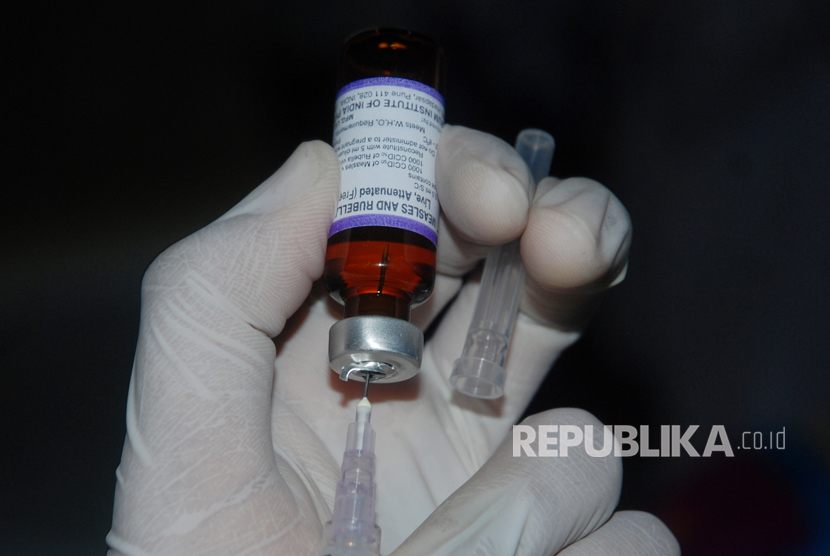REPUBLIKA.CO.ID, JAKARTA -- Indonesian Pediatric Society (IDAI) Chairman Aman Bhakti Pulungan expected people to welcome Measles Rubella (MR) vaccine that provided by government. He reminded measles and rubella are contagious, very dangerous for infected individuals and may threat the lives of others.
“So we are in the state of emergency. Generally, we’re still in the second worst for measles,” Aman said on Thursday (August 23).
He said currently the coverage of measles and rubella immunization in Indonesia is still very poor. Aman explained, to reach a safe level an area must have 90 to 99 percent immunization coverage.
Currently only around 15 provinces in Indonesia have vaccine coverage to the safe number. Children outside those 15 province are still not protected from measles and rubella. Aman said it was certainly very dangerous as diseases are contagious.
“We should learn from the case in Asmat where almost 100 people died of measles,” Aman said while recalling measles outbreak in Papua province last year.
Aman explained rubella disease is a mild ilness in children. However, infected children also can transmit the disease to pregnant women. When infected, the risk of baby in the womb for developing congenital rubella syndrome is 90 percent.
Since 1982, Indonesia has carried out routine measles immunization for nine-months-old children. During the three decades of the routine immunization program, national coverage was quite high. However, it was not evenly distributed, leaving pocket areas that have the potential to trigger extraordinary events.
After calculating the burden of rubella disease and paying attention to the availability of combined vaccine MR, the government decided to replace measles vaccine with combination of MR vaccine in mass immunization program. The fist phase was conducted in August 2017 and the second phase to start in August 2018.
Earlier, Fatwa Commission of the Indonesian Ulema Council (MUI) has stated the use of Measles Rubella (MR) vaccine produced by Serum Institute of India for national immunization campaign is permissible (mubah) although it was made from religiously unclean substances, namely pig and its derivatives, which was unlawful (haram).
On the other hand, MUI did not ban the use of MR vaccine in mass immunization campaign in response to emergency circumstance. In this case, necessity overrules prohibitions.
"The use of MR vaccine product of Serum Institute of India is permissible or mubah because of emergency while halal-certified vaccine is not available," Chairman of MUI Fatwa Commission Prof Hasanuddin AF said to Republika.co.id at MUI office in Central Jakarta, on Monday (August 20) night.
The community divided in responding MUI's fatwa. Some of them acknowledged part of the fatwa that said the vaccine is haram and neglecting the advise to take the benefit of the vaccine under circumstance of emergency.
MUI said there was no alternative other than vaccination to prevent measles and rubella diseases. No halal vaccine existed yet.



